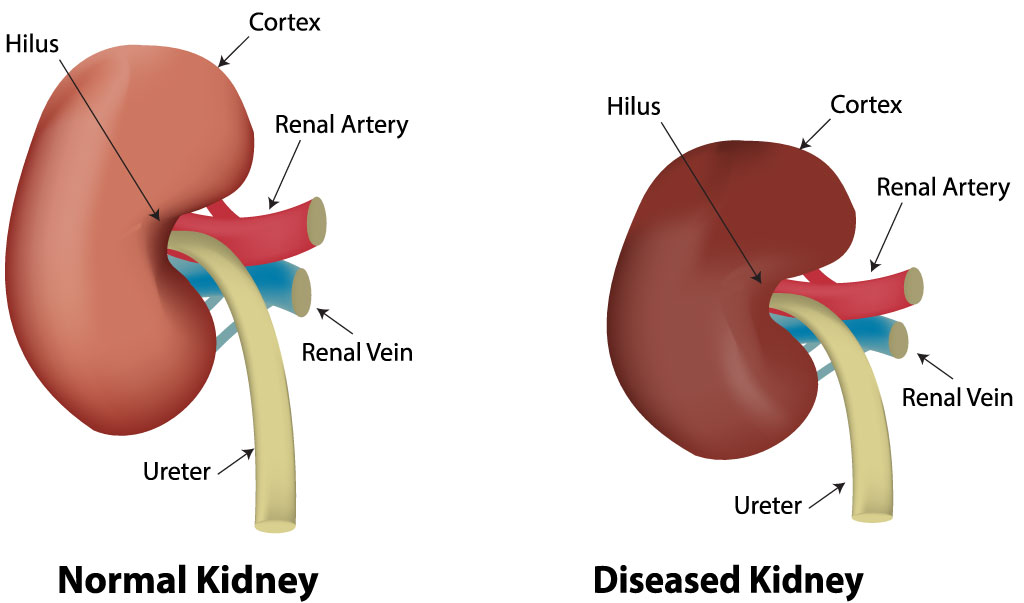Kidney health
This fact sheet is for people who have had a blood and marrow transplant (BMT).
BMT patients may experience health complications in the months or years following the transplant. Long-term follow up has an important role in the early detection of any health issues.
This fact sheet has general information about ways to look after your health. If you have specific concerns, speak to your BMT team or your doctor for further information and advice.
What are the issues that could affect my kidney health?
After a BMT, you may experience issues with your kidneys. These can be acute or chronic.
- Acute kidney disease – occurs quickly with a rapid onset of poor kidney function. This is usually short term and reversible.
- Chronic kidney disease – occurs when kidney function worsens over a number of years. Usually irreversible.

These issues could be caused by:
- chemotherapy exposure, total body irradiation (TBI) and/or radiation therapy
- medication to prevent and treat graft versus host disease (e.g. ciclosporin and tacrolimus), antibiotics (e.g. gentamycin and amphotericin), antifungals and antivirals
- damaged blood vessels to the lining of kidney due to high blood pressure and diabetes
- smoking cigarettes
- other health problems associated with BMT such as:
- haemorrhagic cystitis – inflammation of the bladder causing blood in the urine and pain
- sinusoidal obstruction syndrome (SOS) or veno-occlusive disease (VOD) – liver complications
- BK virus infection – usually latent for a period of time.
What are the symptoms?
Symptoms of kidney problems may include the following.
- Blood in the urine
- Fluid retention and swelling, especially of the feet and ankles
- Burning sensation when urinating
- Excessive or low amount of urination
- Urgent sensation to urinate
- Shortness of breath
- Nausea and vomiting
- Bad breath and a metallic taste in the mouth
- Difficulty sleeping
- Unexplained tiredness
- Loss of appetite
- Headaches
- Lack of concentration
- Itchy skin
- Low red blood count (anaemia)
- High blood pressure
How are kidney health issues diagnosed?
- Routine blood tests after a BMT give an indication of kidney function.
- Urine tests show the presence of an infection and can also detect abnormal protein levels.
- Computerised tomography (CT) scans and ultrasound may also be ordered by your BMT team if routine tests indicate a reason for further investigation. This imaging shows structural damage and atrophy (shrinking of the kidneys).
- At each follow up clinic appointment your blood pressure will also be checked.
It is important to continually monitor and diagnose kidney problems early. Any or all of these diagnostic tests can paint a clear picture to aid your doctor in diagnosis of kidney function. It is important to report any of the symptoms listed and to continue your annual appointments after your BMT.
How can I look after my kidneys?
- Make healthy lifestyle choices – This includes doing regular exercise, maintaining a healthy weight, eating a balanced nutritious diet, not smoking and limiting alcohol consumption.
- Ensure an adequate daily fluid intake.
- Have an annual assessment – Check kidney function, including electrolytes (blood salts and minerals), blood sugar levels, blood pressure and urine test (urinalysis).
- Be cautious with medication – Some drugs, such as non-steroidal anti-inflammatory drugs (aspirin, ibuprofen or naproxen), antibiotics, antifungals and antivirals may be harmful to the kidneys. Any medication should be taken as prescribed under the guidance of medical experts. Use medications carefully.
- Control your blood pressure daily and manage other health issues, e.g. diabetes.
Where can I find further information?
- Health Direct. www.healthdirect.gov.au
- Kidney Health Australia. www.kidney.org.au
- Kidney Health Australia. Newly diagnosed. kidney.org.au